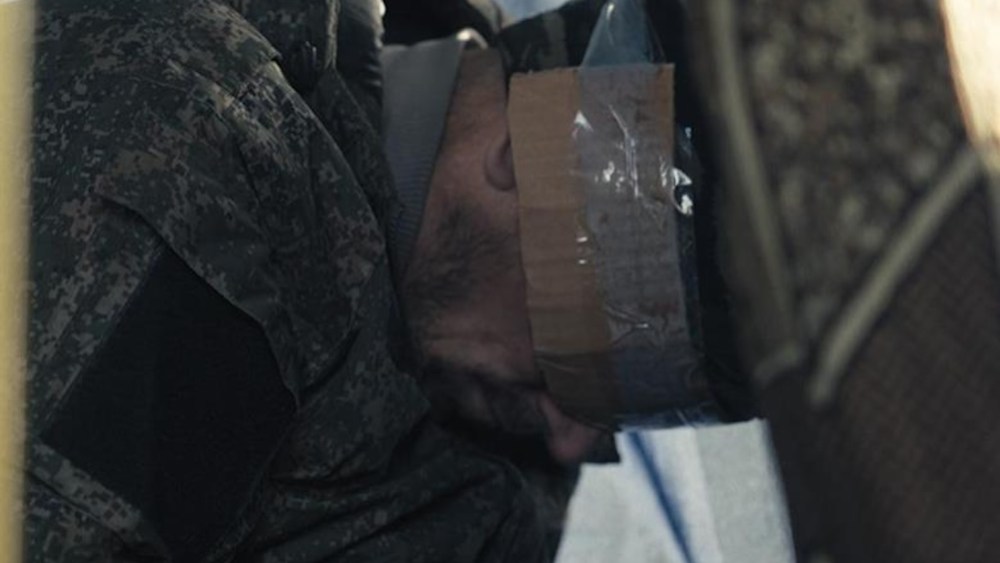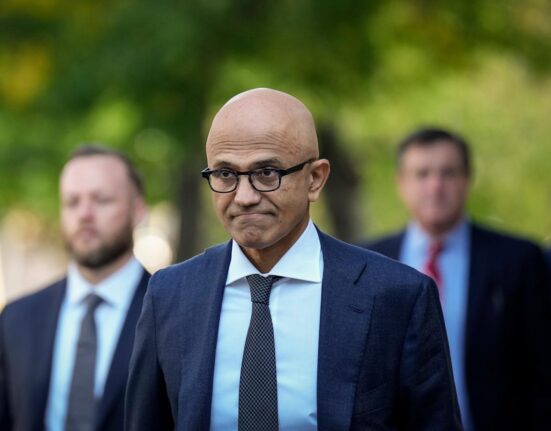In the beginning, wars are measured in days. As the days become weeks and months, however, different metrics take over: materiel use; meters of territory won and lost; climbing numbers of captives and casualties. And when it comes to Ukraine, the film world has its own dolorous scorecard — the increasingly crowded “Ukraine war documentary” category, a shellshocked canon to which celebrated producer, Alexander Rodnyansky (“Leviathan,” “Loveless,” “Beanpole” etc), along with his co-director Andriy Alferov (“Dissident”) now adds his novel take. Guided by Rodnyansky’s family history — which is interwoven with the story of Ukrainian cinema since Rodnyansky is a third-generation filmmaker — “Notes of a True Criminal,” traces the last 80 years or so of Ukrainian history and finds it studded with war, disaster and atrocity.
This is a powerful but pessimistic project, starting with the title which, like that of Julia Loktev’s brilliant “My Undesirable Friends,” is a gallows-humor acknowledgement of persona-non-grata status. Following Russia’s 2022 invasion, Rodnyansky, declared to be a “foreign agent,” was convicted and sentenced in absentia to 8 1/2 years in prison. Yet the title is also indicative of the film’s jotted-down-and-then-joined-up quality, which allows for erratically illuminating parallels to be drawn from the collision of events that are different in era and nature but often depressingly similar in effect.
A case in point: the opening shot is the almost incomprehensibly ghastly image of WWII-era German nurses sorting offhandedly through what our brains only slowly register as a pile of squirming babies. The logical connection to what follows is less explicit than the figurative one: here, too, it takes a certain oblique perspective before the cyclical horrors of Ukraine’s recent history come into focus. And so over the course of the film’s somber two hours, Rodnyansky narrates to a zigzagging chronology. Sometimes using footage he shot during his earlier career as a documentarian, and sometimes finding archival reportage to suit the purpose, he goes back and forth from the current conflict to the desolation of Chernobyl to the Babyn Yar massacre of 1941 in which almost 34,000 Jews — including members of Rodnyansky’s own family — were murdered by the Nazis over a two-day period.
But the presentation is anything but a generic cataloguing of atrocity. Editor Nazim Kadri-Zadei cuts to a rhythm whereby context is efficiently established, and then smaller stories that elucidate central ideas play at their own pace. Chernobyl is approached via a refugee family from Tajikistan who fled war in their homeland and came to settle just outside the quarantined area. “Better to die slowly from radiation,” reasons the father as his child plays nearby, “than by bullets.” Babyn Yar is covered, but so is a 1966 memorial on its 25th anniversary that itself became a traumatizing event when many of those who in attendance, including Rodnyansky’s grandfather, were subsequently persecuted by Soviet authorities. And some of the most evocative commentary on the ongoing war comes through the lens of the 2022 trial of a young Russian soldier for the murder of a Ukrainian civilian.
What gives “Notes of a True Criminal” added texture, however, are frequent excerpts from films directed by Rodnyansky’s teacher, Felix Sobolev. A tyrant in the classroom whom Rodnyansky nonetheless identifies as a great humanist through his work, many of Sobolev’s documentaries follow scientific discoveries and experiments. These clips give the doc its broader dimension of dismay: he films an excavated neanderthal skull and observes that certain cracks and striations indicate he died a violent death. Later, a test is carried out on children seated around a communal pot of porridge which has been sweetened with sugar – all except the last portion which is heavily salted. Most of the salt-eaters agree that their portion is sweet after all their peers say so; the instinct to conformity is strong.
It is sobering to consider that some of the participants, young children in the early 1970s, will now likely have children of their own of soldiering age. This generational inheritance is really the film’s organizing principle, as demonstrated by parts featuring Rodnyansky’s adult son Sasha. Early on, we learn that it was Sasha, living in Kyiv as the first Russian bombs fell, who called his father to tell him the invasion had begun. That moment, Rodnyansky claims with complicated regret, will for him forever be the dividing line between “before” and “after.” Later, we get footage of Sasha visiting the grave of his grandfather and understand that each successive generation of this family has known its own horrors and that each presumably had a moment when they realized the cycle would not be broken with them. It’s a profound but despairing note to leave us on, with every respite merely the calm before another storm. Ukraine, we must believe, will know peace again. But inevitably, it will also know war.










Leave feedback about this